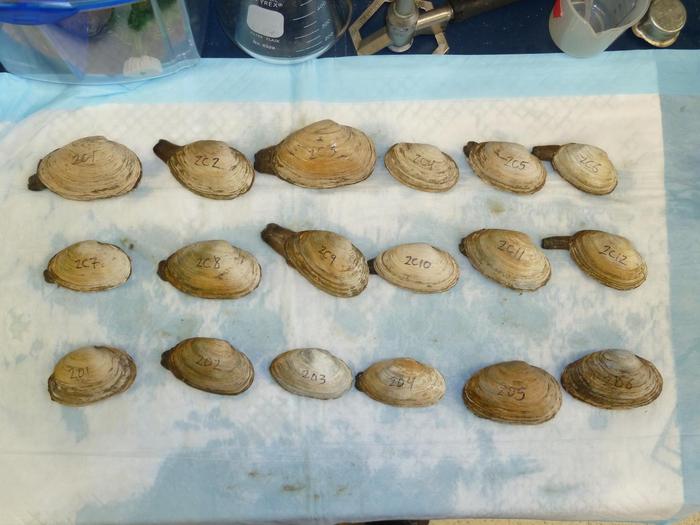Clams and cockles have been succumbing to a contagious form of cancer for centuries, two new studies have found. The analysis is reshaping our understanding of cancer and could lead to new approaches to tackling the human form of the disease in the future.
We don’t typically think of cancer as being something that can be spread around. The closest human equivalent would probably be cancers that are caused by infectious agents like the human papillomavirus (HPV), responsible for many cases of cervical and throat cancers. In that case, HPV can be transmitted between people, and may later go on to cause cancer, but it’s not actually the cancer itself that’s spreading.
In nature, there are only two well-characterized examples of transmissible cancer. One, in Tasmanian devils, leads to facial tumors that spread via biting and has caused populations of the little marsupials to tank in recent decades. The second is a sexually transmitted cancer of the genitals that affects dogs, although thankfully the prognosis is usually good.
Given how rare this phenomenon is, reports of a transmissible cancer affecting shellfish – which date back to the 1970s – have understandably piqued scientists’ interest in recent years. Dr Michael Metzger of the Pacific Northwest Research Institute has spent a long time studying a contagious leukemia-like cancer in soft-shell clams, and along with colleagues has just published a new, comprehensive evaluation of its evolution.
Concurrently, an independent group of European researchers has released a similar study on transmissible leukemia in cockles. Combining all of this rich data will give scientists a window into cancers that have persisted in these species for literally hundreds of years.
“By understanding how these cancers evolve, and how the clams themselves evolve in response to these infectious cancers, we hope to gain insights that could help us develop novel strategies for blocking cancer in humans and other species,” Metzger explained in a statement. “It’s a natural experiment that provides a unique opportunity to give us insight into cancer that we could not get anywhere else.”
The Metzger Lab at the Pacific Northwest Research Institute has been studying transmissible cancer in soft-shell clams.
Image credit: Michael Metzger, Ph.D.
Living cancer cells can move through the water from one affected mollusk to another, spreading the disease around a population. In most cases, these types of transmissible leukemia are fatal to the animal.
In the clams, Metzger’s work found that the cancerous lineage has persisted for over 200 years. The team compiled a reference genome for the soft-shell clam (Mya arenaria) and looked at the patterns of gene mutations that cause the cancer, finding that the structure of the genome has continually changed over time and is very unstable. This is in contrast to what has been seen in the genomes of dogs and Tasmanian devils, despite their own long-lived transmissible cancers.
It was a similar picture with the cockles. The team on this study assembled the first reference genome for the common cockle (Cerastoderma edule) after collecting around 7,000 individual shellfish from 11 countries. Again, the researchers tracked genetic changes over time – one particularly striking finding was that the cancer cells have co-opted the cockles’ own mitochondria on at least seven separate occasions in the past. And once again, it seems these cancers have been around for a long time.
“Our study showed that the cells in these cockle tumours contain highly variable amounts of genetic material, which is very unusual compared to other types of cancer,” said co-first author Dr Daniel Garcia-Souto in a statement. “These cancers have been undergoing extreme chromosomal changes and continuous genetic reorganisation, probably for hundreds or thousands of years, which challenges the theory that cancers require stable genomes to survive long-term.”
Transmissible cancers in aquatic species are less well understood than those in Tasmanian devils and dogs. Beyond the possible implications for human cancer research in the future, marine bivalves themselves are a vital part of many ecosystems, so it’s critical to understand the many threats they face. These cancers can combine with environmental factors like pollution and rising sea temperatures, causing catastrophic mortality in a particular region – more research will hopefully help scientists prevent these episodes.
But it doesn’t stop with clams and cockles. Other shellfish, like mussels, are already known to be affected.
“More will be coming – more that we know of, and probably more that we don’t know,” Metzger told the New York Times.
The studies on clams and cockles are both published in the journal Nature Cancer.
Source Link: Cancer Is Spreading In Shellfish, And Has Been For Hundreds Of Years
